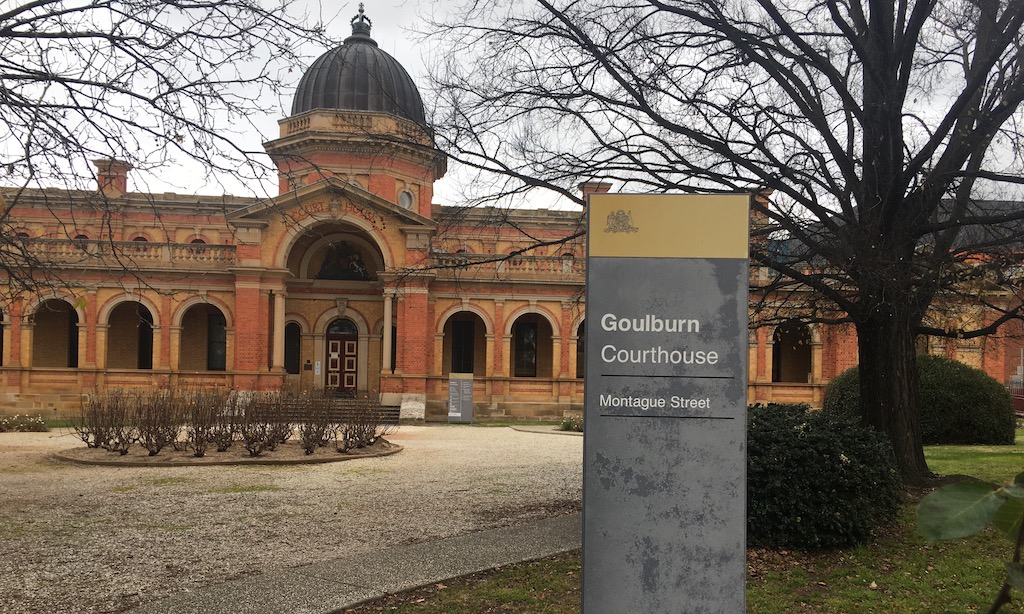
Aidan Kelly was sentenced to jail by the Goulburn District Court in 2021. Photo: John Thistleton.
CONTENT WARNING: This article discusses a sexual assault.
A man found guilty of raping a sleeping woman north of Goulburn has failed in his bid to appeal his sentence, with justices remarking how sexual offences of even a short duration can have “lifelong consequences”.
The woman and her friends went to a pub in Crookwell after work on 22 November, 2019, where they met Aidan Kelly.
Closed-circuit television footage showed the then-19-year-old was sexually interested in her, but this interest was not reciprocated. The group later went back to a house and continued drinking.
Kelly was drunk and at one stage he took off his clothes, referred to his penis as a “grower” and said he would “smash” the woman.
She eventually went to sleep in a bedroom with her boyfriend, who left during the night. The woman then woke up to find Kelly raping her.
In a victim impact statement, she said: “That morning I did not get a choice, I didn’t get to say no, I had no chance of preventing this.
“My body was no longer mine, the choice in what happened to me and my body was taken away from me.
“There are no words that can accurately capture what this feels like, nor should there ever be any.”
She also said Crookwell was a very small town and gossip spread quickly.
“I was so scared no-one would believe me. I was scared of what was going to happen and it took me weeks to go back out in public, I didn’t know what to do or where to go,” she said.
In October 2021, a jury convicted the Canberra-born Kelly on one count of sexual intercourse without consent and the Goulburn District Court sentenced him to almost six years’ jail with almost four years’ non-parole.
He sought leave to appeal his sentence, arguing the sentencing judge erred in determining that the offence fell in the mid-range of objective seriousness, as well as that the sentence imposed was manifestly excessive.
While the NSW Court of Appeal’s Justices Robert Beech-Jones, Christine Adamson and Stephen Campbell allowed him leave to appeal, they ultimately dismissed the appeal last week (7 September).
Kelly’s lawyers had argued the offending was short, there was no real planning, he was only 19 at the time and he didn’t threaten, humiliate or physically injure the woman.
But when rejecting the submission on humiliation, Justice Adamson said: “It is plain from the complainant’s victim impact statement that she found it humiliating to realise, when she woke, that the applicant had used her body without regard to her identity, personality or bodily integrity, but merely as a tool for the satisfaction of his sexual desire.”
Justice Adamson also said to submit that there was neither violence nor physical injury “fails to acknowledge the gross violation of the complainant’s bodily integrity and dignity”.
She said the matters in mitigation were Kelly’s youth, lack of antecedents and prior good character, but he “was not remorseful, lacked insight and his prospects of rehabilitation were found not to be good”.
The justices said the finding that the objective seriousness of the offending was within the mid-range was open to the sentencing judge, and the sentence was not manifestly excessive.
“That the offending only occurred over a short duration is no measure of seriousness; sexual offending of a short duration can have lifelong consequences,” the justices said.








